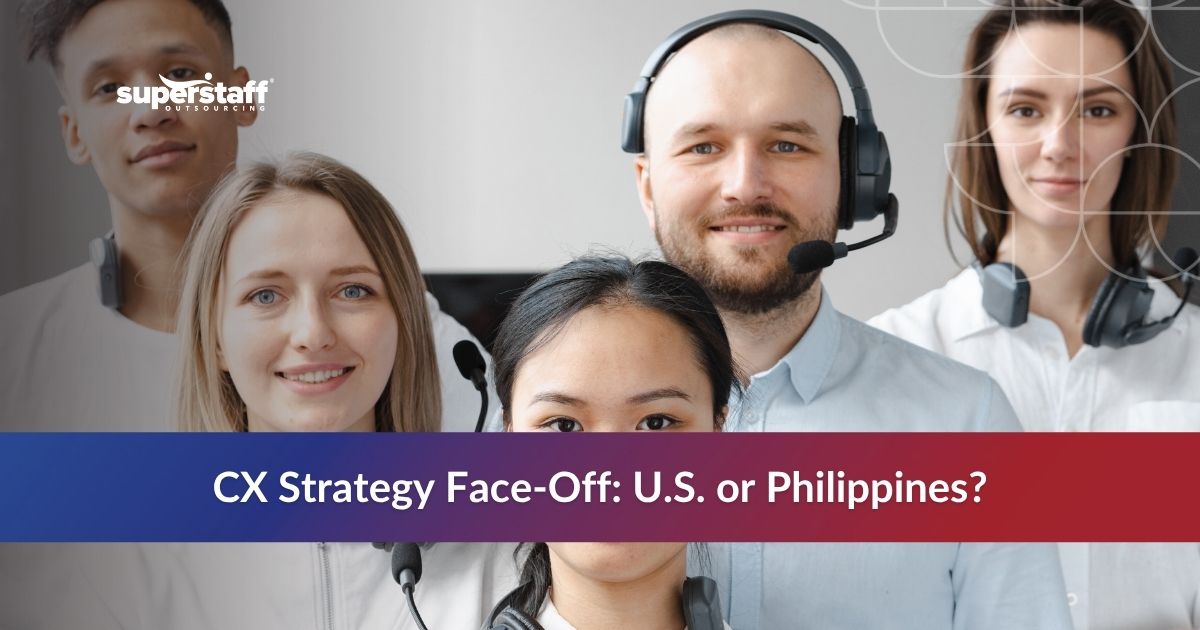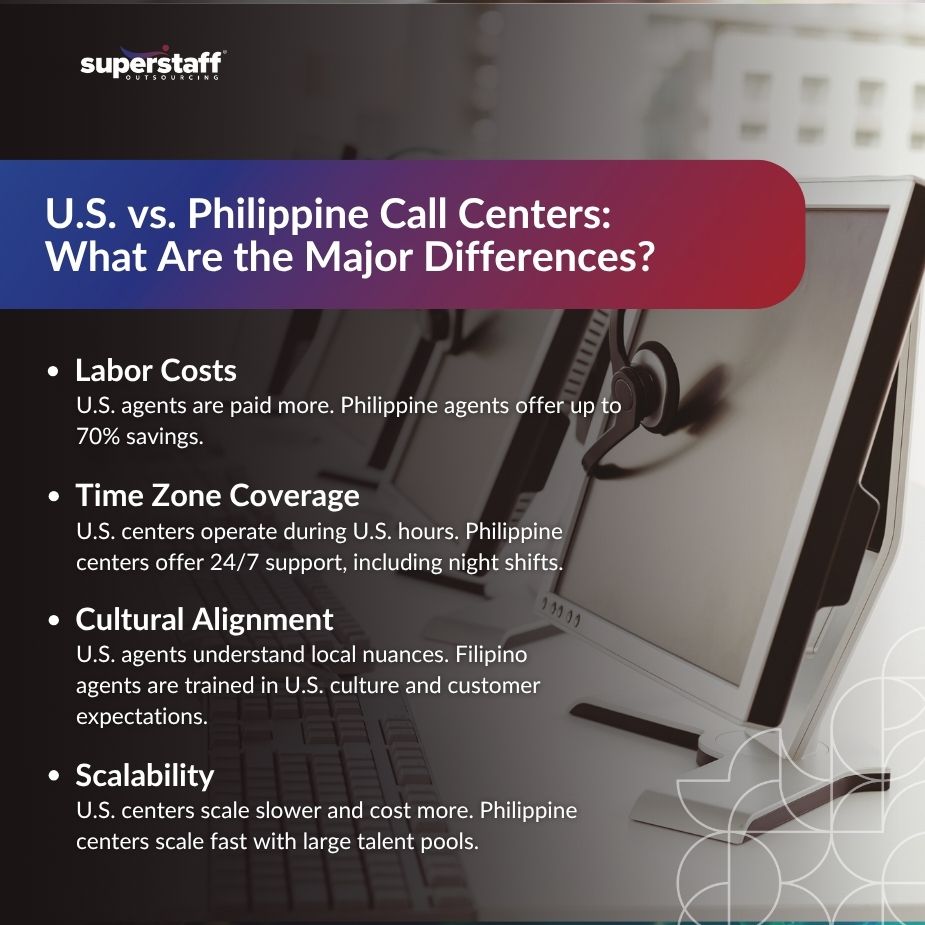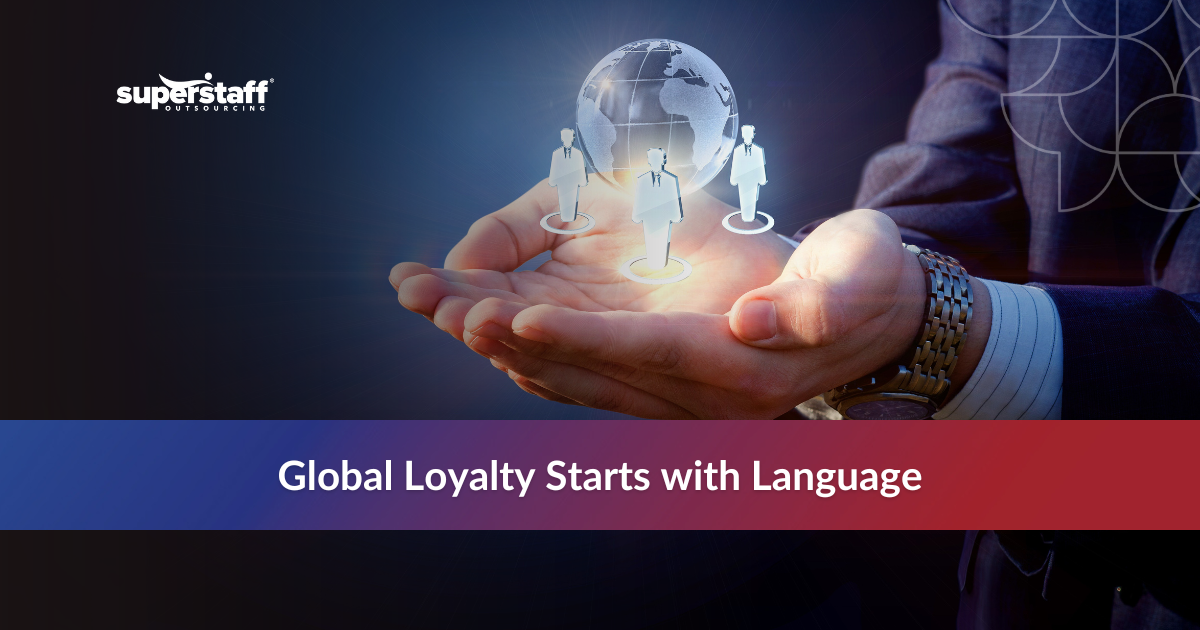
In today’s high-pressure business environment, delivering consistent, high-quality customer service is non-negotiable—but political shifts are making that mission more complex. As Trump-era policies resurface, companies are facing renewed uncertainty around labor availability, immigration restrictions, and rising operational costs.
These changes are forcing CX leaders to reevaluate their strategies, particularly in terms of where and how support teams are deployed. This blog provides a practical comparison between U.S.-based operations and Philippine call centers, enabling decision-makers to navigate the evolving landscape and choose the path that best supports long-term service excellence.
Trump’s Policy Agenda Could Reshape the CX Landscape for U.S. Companies
Whether returning to the office or influencing policy debates, the Trump administration’s stance on BPO and its effects continues to cast a long shadow over the U.S. outsourcing landscape. The revival of protectionist rhetoric and America-first labor policies is again influencing how businesses approach customer experience (CX) delivery.
One major challenge: immigration limits. These constraints reduce the talent pool for call centers in US, especially in diverse metro hubs where many support teams are based. With fewer candidates, labor costs rise, making scalability a growing concern.
Second, proposed tariffs and stricter employment regulations increase domestic operational costs, placing pressure on CX departments to do more with less. Although this political climate has reignited anti-outsourcing sentiment, it remains more reputational than regulatory; companies still have the freedom to outsource, but face greater scrutiny when doing so.
With U.S.-based strategies facing more pressure, businesses are revisiting offshore options, especially in the Philippines.
The Philippines: A Proven Offshore CX Powerhouse
In contrast to rising costs at home, Philippine call centers offer a stable, proven solution. With decades of outsourcing experience, the Philippines remains a top destination for U.S. companies seeking performance, flexibility, and cost savings in their outsourcing contact center strategy.
The country boasts high English fluency and a neutral accent, allowing agents to support American customers seamlessly. The cultural alignment—shaped by decades of Western influence and strong educational ties—helps CX teams connect more authentically with U.S.-based consumers.
Cost is another major draw. Businesses can save up to 70% by shifting operations to the Philippines without sacrificing quality. Even during global disruptions like COVID-19 or economic slowdowns, the Philippine BPO industry has shown impressive resilience, maintaining service continuity and adapting to hybrid work demands.
Still, cost and talent aren’t the only considerations—location strategy is more critical than ever.

Proximity, Control, and Compliance: When U.S.-Based Call Centers Still Win
Despite the advantages of going offshore, some companies still value keeping their support teams close to home. Call centers in US offer immediate real-time collaboration between CX agents and in-house teams. This proximity enables more agile problem-solving, particularly in industries with stringent compliance requirements or rapid product development cycles.
There’s also the matter of data security and customer trust. For specific clients—especially those in the healthcare, finance, and public sectors—there is comfort in knowing that their support teams remain onshore, thereby reducing compliance risk and avoiding questions about data sovereignty.
Additionally, shifting regulations can be easier to manage when the entire team operates under one legal jurisdiction.
But with the threat of rising costs and labor shortages, is onshore support still sustainable long term?
Cost Comparison: U.S. vs. Philippine Call Centers
When weighing CX strategies, cost remains a critical factor. Consider the average salary of a U.S.-based call center agent, often exceeding $35,000 annually, excluding benefits, facilities, and training. In contrast, Philippine call centers can deliver the same (or higher) performance for a fraction of the cost.
Beyond wages, training timelines, and onboarding efficiency are often faster and more scalable in offshore models, especially when BPO providers have existing pipelines of trained agents. And while time zone differences may seem like a hurdle, many Philippine teams are already equipped for overnight U.S. coverage.
With so much at stake, many businesses are opting for a third path—a blended customer experience (CX) strategy.
Blended Models: The Best of Both Worlds
Rather than choosing between onshore and offshore, many companies are turning to hybrid outsourcing models that integrate the strengths of both. A blended CX approach combines U.S. support teams for high-sensitivity or compliance-heavy cases with outsourcing contact center operations in the Philippines for high-volume and repetitive tasks.
This model also enhances redundancy planning; if one region is impacted by policy shifts or operational disruptions, the other can maintain business continuity. With 24/7 support across time zones, brands gain global coverage without sacrificing quality.
Ultimately, this hybrid model delivers on the priorities that matter most: cost efficiency, responsiveness, and CX reliability.
The goal is not just cost control, but CX continuity—and that means having a responsive partner.
Choosing the Right BPO Partner Amid Uncertainty
As economic and political landscapes continue to shift, especially in light of the Trump administration’s stance on BPO and its effects, businesses need more than just a vendor. They need a partner. One that brings agility, resilience, and forward-thinking to the customer experience equation.
A trusted BPO partner can be the stabilizing force in a volatile environment, especially when your brand reputation depends on consistent, high-quality service delivery. But what should you look for when outsourcing contact center operations under uncertain conditions?
Look for Flexibility in Scaling
Your customer support needs aren’t static. A seasonal spike, a new product launch, or a policy-driven market shift can drastically alter your service volumes overnight. That’s why scalability is a non-negotiable feature in today’s CX partnerships.
The right BPO provider should demonstrate an ability to quickly ramp up or scale down your team without delays or service dips. This includes access to a robust talent pipeline, streamlined onboarding processes, and flexible workforce models (including part-time, full-time, and project-based agents). With scalable support, you stay responsive without overcommitting resources.
Philippine call centers, in particular, are renowned for their ability to scale large customer experience (CX) teams quickly and affordably. This makes them an ideal option for companies bracing for both rapid growth and economic slowdowns.
Ensure Compliance With Global Data Regulations
Data privacy is no longer just an IT concern—it’s a business imperative. From GDPR in Europe to HIPAA in the U.S., companies are held to increasingly strict standards when handling customer data.
If you’re outsourcing your contact center operations, your BPO partner must be fully equipped to meet these global compliance requirements. This means more than just secure systems; it includes agent training, internal audits, data-handling protocols, and clear lines of accountability.
A strong BPO partner will provide full transparency into their data governance processes and demonstrate readiness to comply with country-specific rules. Philippine call centers that serve international markets are often ahead of the curve in this area, as they regularly operate under multiple regulatory frameworks.
Prioritize Providers With a Track Record in Regulated Industries
In times of uncertainty, experience matters. You want a BPO partner that has navigated complexity before, especially in regulated industries like healthcare, fintech, legal, or insurance.
These industries demand more than courteous service—they require accuracy, speed, and a deep understanding of compliance. A provider with a proven track record in these fields brings an added layer of confidence that they can deliver under pressure.
Look for case studies, client testimonials, or certifications that prove their ability to manage sensitive information, adhere to strict service-level agreements (SLAs), and maintain service quality during transitions or disruptions. This level of credibility will help future-proof your CX operations against political or regulatory surprises.
Philippine Call Centers: Your Anchor in an Uncertain CX Climate
As Trump-era dynamics reemerge, CX leaders must prepare for operational uncertainty by evaluating offshore, onshore, and blended options with care.
Philippine call centers offer strong cost and talent advantages, while call centers in US provide greater proximity and regulatory control. For many businesses, a hybrid strategy may offer the most resilient path forward, balancing cost savings, quality service, and business continuity.
Partner with a BPO provider like SuperStaff that understands the evolving CX landscape—one that can deliver agility, compliance, and high-quality customer experiences no matter what 2025 brings.






